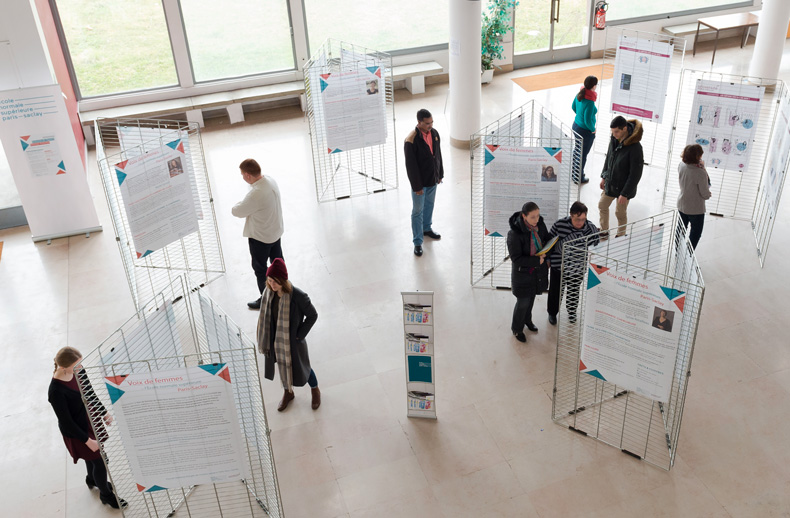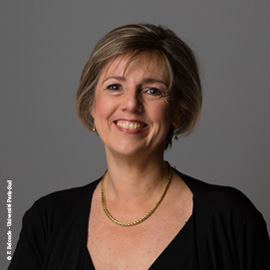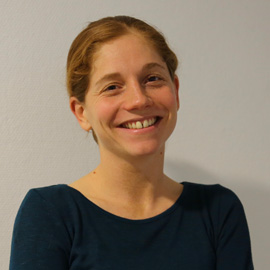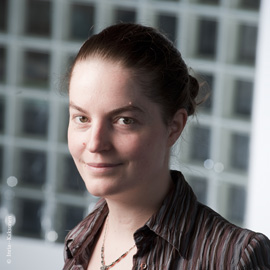Gender equality in the workplace: not just a question of expertise

Women alumni and academic staff on campus recounted their study and professional experiences, and shared their opinions of how women’s expertise is perceived in higher education and research.
Being a women in higher education and research
Sylvie Retailleau, professor of physics and president of Université Paris-Sud, said “to improve gender equality in higher education and research, men should look to women as role models and not necessarily the other way around!”
“Recognising the value of all the duties of an academic, not least the teaching component, would also improve recognition of women, who have a big hand in teaching and general tasks for everyone’s benefit—particularly the more thankless ones!”
“I have never suffered from severe discrimination but I felt the effects of barriers and obstacles increasingly as I took on greater responsibilities. When you are a woman nothing is ever attained as a matter of course; you really have to prove yourself. You are never granted a basic esteem that comes with the status of your position, your title and your responsibilities; it is always through your work and expertise that you earn respect.”
“This may seem natural, healthy even, but it is not always the case for a man, who can often take his status for granted. But afterwards you tend to gain from having acquired esteem based on your expertise.” The fact of being a woman “no doubt also helps sometimes, with interpersonal relations which can at times be different.”
Beyond gender, expertise
Aline Bel-Brunon, lecturer in mechanics and engineering at INSA Lyon, also stresses the importance of women’s expertise, saying women must themselves be convinced of it and make sure it is duly recognized.
“In my field, there are very few women in senior positions. This seems to me to be due in part to self-effacement. I notice that many young women researchers around me feel illegitimate. I also felt that way sometimes early in my career. I think that one thing that could improve the condition of women would be for them to stop being self-effacing and to show ambition without considering themselves illegitimate.”
“In my field of study (mechanics, engineering) girls were fairly rare, so they were brought to the fore. Even today, I am often asked to do outreach activities as a woman researcher, whether the outreach targets girls or not. Yet it can’t be said that this influences my career; I am not included in a new project because I am a woman but because I have the skills.
I was held back once due to being a woman, when I was pregnant with my first child. Maternity in general slows down a career. You don’t embark on new projects a few months before taking maternity leave, and things take a while to get going again afterwards. This is also true for fathers who, from what I see around me, have trouble reconciling their personal and professional lives in this job that never stops.”
The advantage of linear careers
For Véronique Cortier, CNRS senior researcher at the LORIA laboratory, expertise is not necessarily a factor in women’s lesser career advancement, but the pace of their career can hold their progression back.
I’ve been lucky to work in very open and respectful environments, in both my studies and my research career. No sexist jokes. No feeling of being overlooked because I am a woman. However, the number (and proportion) of women beginning mathematics or computer science studies is currently very low. Yet women have a vital role to play here.
There are efforts still to be made for gender equality, when it comes to promotions for example. There is no discrimination strictly speaking (at least, not that I’ve seen) but non-linear careers are put at a disadvantage compared to fast-track careers, which are seen as more “brilliant”. This probably explains, at least in part, the fact that the proportion of women decreases even further when it comes to being promoted (to professor or senior researcher).”



